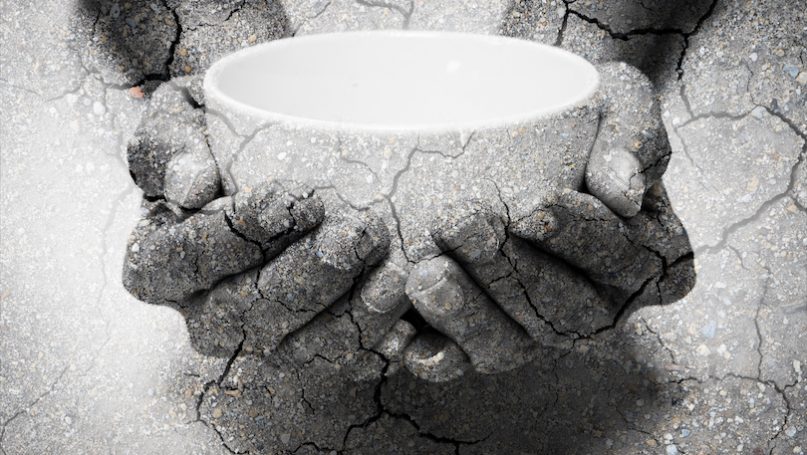
This feature is part of the online resources to accompany the textbook Foundations of International Relations.
Poverty and wealth are often found side by side. They are two dimensions in our world that are interrelated because they affect each other and influence both the willingness and capacity of states to ensure a stable global system. Traditional approaches to International Relations are premised on the notion of state sovereignty. But sovereignty as an absolute concept that reinforces separation between states has been tempered through the many processes of globalisation, including economic agreements and the establishment of international organisations. It has been further eroded by the emergence of human rights, which suggests that the sovereignty of a state can be challenged if a government does not respect or maintain these rights. In relation to poverty, globalisation raises the question of the obligation the wealthy owe to the poor. This thinking advances on what Singer (1972) called the ‘rescue case’ – a hypothetical obligation for someone to assist an infant drowning in a shallow pond if the child can be saved with minimal danger. In the context of global poverty, the logic flows that developed states have an obligation to help poorer states because they can, with minimal effort. However, the obligation of developed states to help alleviate poverty is not just relevant because they can assist; it is also because they are very often implicated in creating the conditions for its existence in the first place due to both the way they have structured the system historically and how they operate in it today. These perspectives confirm that poverty is a global issue on many levels.
When measuring extreme poverty, it is most often thought about in terms of income. The World Bank has defined a global baseline as people living on US$1.90 or less a day. However, it is just as important to include quality of life in our thinking as a life of poverty is one of struggle, scarcity and deprivation. This takes shape through the lack of access to essential services such as affordable health care, electricity, shelter and food. In the poorest states people living in poverty typically also lack access to clean water and sanitation. However, measuring poverty is more complicated than just an income expressed in dollars. Therefore, we must also understand poverty as relative, something that can (and does) happen in just about every community where people cannot afford to participate in everyday life due to their lack of financial means.
Until the arrival of Covid-19 and its associated economic and social impacts, rates of poverty had been declining globally. The World Bank estimates approximately 700–730 million people live in extreme poverty in 2021 – approximately 9 per cent of the global population. While this figure may seem high, by comparison, this figure was 35 per cent in 1990. In 2018, the World Bank (2018a) presented the following scale in US dollars defining the level an individual’s income would need to reach to meet their basic needs, relative to the cost of living in their society:
- $1.90 per person per day — in low-income states
- $3.20 per person per day — in lower-middle-income states
- $5.50 per person per day — in upper-middle-income states
- $21.70 per person per day — in high-income states
Text adapted from Arvanitakis, James and David J. Hornsby. ‘Poverty and Wealth’. In, McGlinchey, Stephen. 2022. Foundations of International Relations. London: Bloomsbury.
Below is a collection of multimedia resources that help unpack, and explain, the importance of poverty and wealth to International Relations.
General overviews
World Data Lab – poverty infographic
Global debt clock – infographic
Our World in Data: Extreme Poverty – website database
Case Studies
Academic debates on poverty and wealth